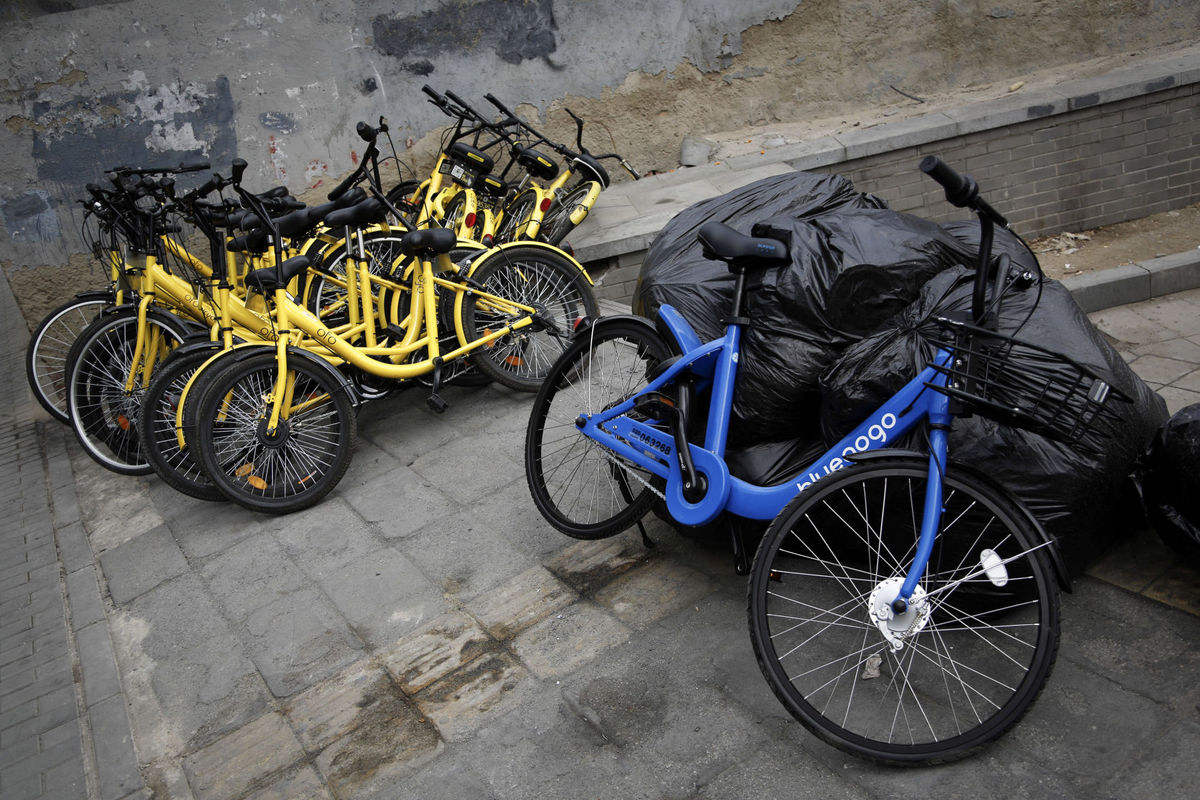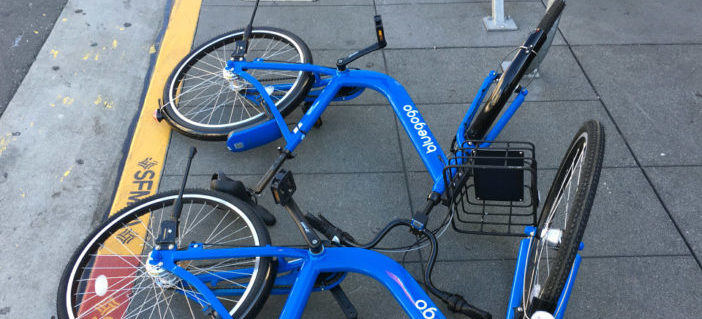China’s booming bike-sharing industry takes its credit for a potential solution to congested roads and the pollution, as well as the convenience of people’s life, but as it grown problems have emerged.
Earlier today, news of the bust of Bluegogo and Coolqi, two of the most popular bike-share brands, has reopened the discussion about the reliability of the bike-sharing scheme in the country.
Several news outlets have reported that key people in Bluegogo are nowhere to be found, with CEO Li Gang being absent in China for months. TechNode reported that the bike-share company’s vice president and head of market operation department Hu Yufei has been gone from the company for several months as well.
Meanwhile, Coolqi’s head office in Tongzhou has been stormed by users wanting to get their deposits back. The app, which popularized “tuhao” gold bikes had 1.5 million registered users, while Bluegogo had 6.26 million.
Paying deposits has been one of the most contentious issues in the bike-sharing industry. Other major players have introduced schemes that let users ride without a deposit fee. On Alipay for example, ofo, Ubike, You’an, and Yibu are available and deposit-free. Mobike can be directly accessed on WeChat wallet without a deposit, but the renting fees are a bit higher.
Shared bikes have been seen as a public epidemic, disrupting traffic and blocking access roads. Earlier this year, authorities in Beijing cracked down on bike-sharing, imposed bans, and designated parking zones to curb users from parking anywhere.

Photos: Omaha.com, hoodline.com




